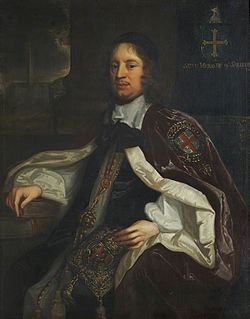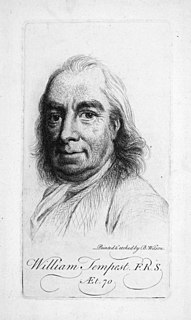Related Research Articles

Christ's College is a constituent college of the University of Cambridge. The college includes the Master, the Fellows of the College, and about 450 undergraduate and 170 graduate students. The college was founded by William Byngham in 1437 as God's House. In 1505, the college was granted a new royal charter, was given a substantial endowment by Lady Margaret Beaufort, and changed its name to Christ's College, becoming the twelfth of the Cambridge colleges to be founded in its current form. The college is renowned for educating some of Cambridge's most famous alumni, including Charles Darwin and John Milton.

Gilbert Sheldon was the Archbishop of Canterbury from 1663 until his death.

The Short Parliament was a Parliament of England that was summoned by King Charles I of England on 20 February 1640 and sat from 13 April to 5 May 1640. It was so called because of its short life of only three weeks.

The Royal Society, formally The Royal Society of London for Improving Natural Knowledge, is a learned society and the United Kingdom's national academy of sciences. Founded on 28 November 1660, it was granted a royal charter by King Charles II as The Royal Society. The society fulfils a number of roles: promoting science and its benefits, recognising excellence in science, supporting outstanding science, providing scientific advice for policy, fostering international and global co-operation, education and public engagement.

Fellowship of the Royal Society is an award granted by the judges of the Royal Society of London to individuals who have made a "substantial contribution to the improvement of natural knowledge, including mathematics, engineering science, and medical science".

Seth Ward was an English mathematician, astronomer, and bishop.
Samuel Parker was an English churchman, of strong Erastian views and a fierce opponent of Dissenters. His political position is often compared with that of Thomas Hobbes, but there are also clear differences; he was also called in his time a Latitudinarian, but this is not something on which modern scholars are agreed. During the reign of King James II he served as Bishop of Oxford, and was considered by James to be a moderate in his attitude to Catholics.

Carsphairn is a village in the historic county of Kirkcudbrightshire in Dumfries and Galloway, Scotland. It is located about halfway between Dalmellington and St John's Town of Dalry, on the A713 road. Carsphairn annual sheep show is held in the village. Cairnsmore of Carsphairn is to the north east of the village in the Carsphairn and Scaur Hills. To the west is the ridge of the Rhinns of Kells in the Galloway Hills.
William Holder FRS was an English clergyman and music theorist of the 17th century. His most notable work was his widely known 1694 publication A Treatise on the Natural Grounds and Principles of Harmony.
William St Clair, was a British historian, senior research fellow at the Institute of English Studies, School of Advanced Study, University of London, and author.

Sir Richard Edgcumbe was an English politician.

William Tempest (1682–1761) was an English barrister and Fellow of the Royal Society.
References
- ↑ "Fellows of the Royal Society", Royal Society. "Fellowship from 1660 onwards" (xlsx file on Google Docs via the Royal Society)